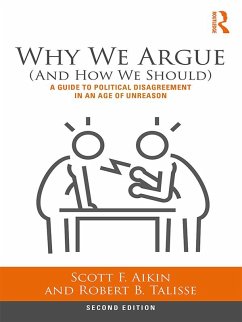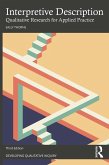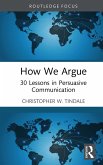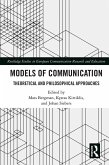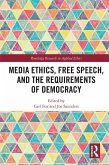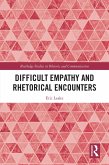Written in a lively style and filled with examples drawn from the real world of contemporary politics, and questions following each chapter to encourage discussion, Why We Argue (And How We Should) reads like a guide for the participation in, and maintenance of, modern democracy. An excellent student resource for courses in critical thinking, political philosophy, and related fields, Why We Argue (And How We Should) is an important contribution to reasoned debate.
What's New in the Second Edition:
- Updated examples throughout the book, including examples from the 2016 U.S. election and first years of the Trump presidency;
- Expanded coverage of dialectical fallacies, including coverage of new types of fallacies and of sites where such fallacies thrive (e.g., cable news, social media);
- Revised For Further Thought questions and definitions of Key Terms, included at the end of each chapter;
- The addition of five new chapters:
- Deep Disagreement
- Argument by Analogy
- Argument between the Ads
- The Owl of Minerva (or weaponizing metalanguage)
- Argumentative Responsibility and Repair.
Dieser Download kann aus rechtlichen Gründen nur mit Rechnungsadresse in A, B, BG, CY, CZ, D, DK, EW, E, FIN, F, GR, HR, H, IRL, I, LT, L, LR, M, NL, PL, P, R, S, SLO, SK ausgeliefert werden.
-Sanford Goldberg, Northwestern University
"Why We Argue (and How We Should), Second Edition continues to provide a superb introduction to reasoned argumentation and an explanation of why it is the lifeblood of healthy democratic practice. This well-timed edition equips readers with additional tools for analyzing when democratic discourse is derailed. Those who would contribute to the revitalization of democratic practice by taking responsibility for their own deliberative obligations will find genial guides in Aikin and Talisse."
-Lawrence Torcello, Rochester Institute of Technology, USA

